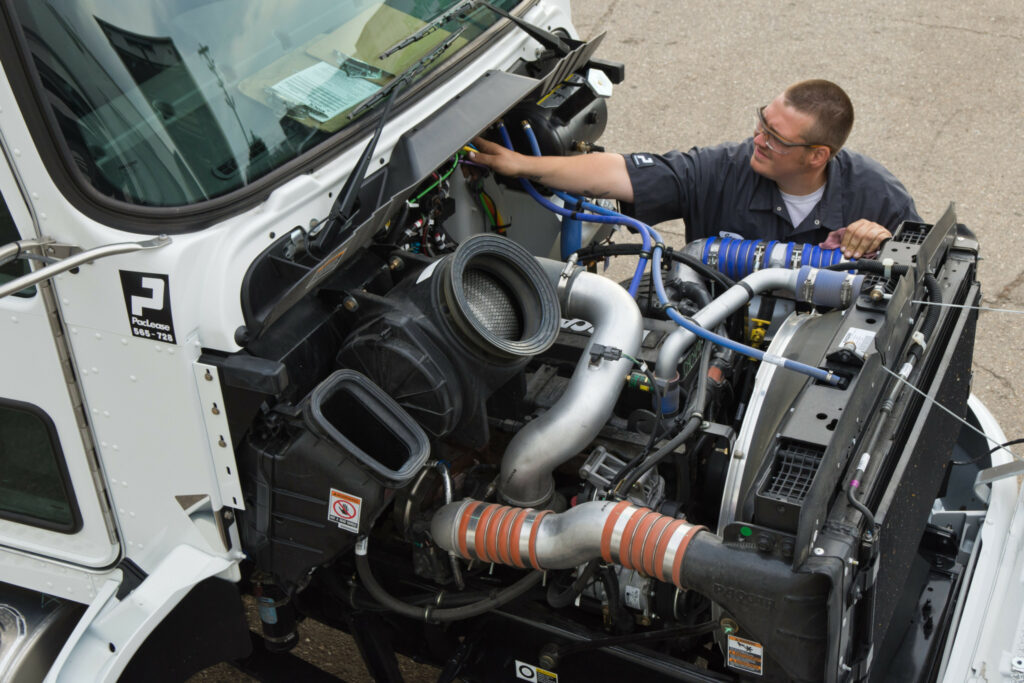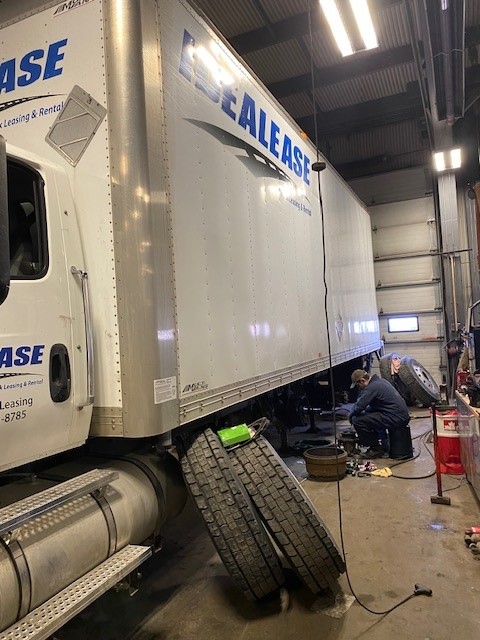Recruiting technicians? Consider cultural fits, homegrown talent.
Staffing a shop is a little like making a salad. You can go to the grocery store, buy your vegetables, and toss them together with little thought to who grew them or where they came from. But one bad ingredient can ruin the whole dish.
Alternatively, you can painstakingly grow your own vegetables in a garden, and take comfort in knowing the ingredients are homegrown and fresh. The former may be easier and more common, but few would argue that nothing beats a homegrown salad, despite the additional time and effort that making one requires.
Likewise, shop managers have two options for finding talent. They can recruit from the industry, hoping to find a fit with someone who just didn’t mesh elsewhere. Or they can carefully cultivate their own talent – investing time and money into developing a technician they hope will reward them with years of service.
Dean Luttrell, regional service manager, Northern Ontario with Rush Truck Centres of Canada, knows which approach he prefers.
“We don’t normally engage too much into the ‘technician recycling program,’” he said of poaching talent from other shops and dealers. “By grabbing young students before they develop bad habits at other dealerships or shops, they come here learning how to do the job right.”
Luttrell and Rush Truck Centres are entrenched in local education institutions in the Sudbury, Ont., area. The company sponsors a co-op student from the local Rainbow District School Board, has a seat on the Ontario Youth Apprenticeship Program board, works with Edge Factor to promote careers in the trades to students, and actively helps students develop the skills needed to enjoy a successful career as a heavy truck technician.
“We have been awarded the Stellar Award from the Rainbow District School Board for 2022 as an employer who provides exemplary learning in the workplace through apprenticeships, co-ops, internships, specialized training and other work-integrated learning opportunities,” Luttrell said proudly.
The Edge Factor videos have been particularly effective. The company comes into a Rush dealership and films technicians as they go about their day. That footage is turned into an informative and engaging video promoting the trade, which Luttrell says are as effective at educating teachers and parents as they are students.
“It showcases Rush as an industry leader in talent development for young apprentices,” he said. “It’s a good learning tool for trade teachers at high schools. [The videos] get good reviews from the students to the point where parents are starting to get engaged in their learning path.”
Roger Staub, service manager with Maxim Truck & Trailer in Regina, is also a proponent of developing technician talent, and like Luttrell he sits on the local apprenticeship board. He takes pride in having developed about 14 journeypeople straight from school over his 18-year career.
“Usually they stay with you,” he said of that young talent. “They get brought up on our [International] products; they don’t have bad habits they bring from another shop that sometimes are hard to beat out. And I’m a strong believer that we owe this to our society, to bring people into this trade — as hard as it seems lately.”
Finding a cultural fit
When seeking to add a technician – whether the homegrown or store-bought variety – it’s vital to ensure they’ll fit into or add to a shop’s existing culture. Jennifer Callaway, co-owner of California-based Inland Empire Fleet Maintenance, runs a small shop and knows well how easy it is to disrupt a good culture.
“I’ve only got six people. One person can turn the whole thing upside down,” she said during a Shop Owner Rountdtable with shop software provider Fullbay. “It’s really about building a good company culture. You want them to enjoy coming to work, and to have good reasons for coming to work.”
Spending time on the shop floor herself is one way Callaway monitors the culture. When the techs are singing, she knows things are going well.
“I’ve got a bunch of American Idols in my shop,” she said. When the shop is silent, she worries. “In a group that small, you can tell right off the bat when something is off. If everyone shies away, goes off in different directions — you sense it right away if you’re in tune with the people you have.”
Likewise, Staub is always looking for signs among his techs that something is amiss. It is important to identify and address problems early, he said, before they fester and manifest into larger problems.
“It usually only takes one or two guys for a bad culture in a shop to start and spread,” he said. “Get on the problem right away rather than walk away from it. Negativity is not hard to find lately. Half the time, it’s no big deal and you can deal with an issue fairly quickly. In most cases, it’s probably a small problem like a guy wanted a day off and didn’t get it. Easy problems to fix.”
Inland builds camaraderie among technicians by hosting group activities outside of work, such as going to baseball games.
What motivates them?
Henry Uribe, owner of OnSite Truck & Equipment Repair, runs a broader network of facilities with many more technicians, yet is equally cognizant about culture when hiring. He begins looking for fit before he even conducts an interview, by scanning a candidate’s social media presence to determine what drives them. This can also serve up clues as to why they left their previous role.
A family guy may not want to work nights. Another who has a stay-at-home spouse probably needs to be home on weekends to help with the kids. Someone who goes camping every weekend won’t want to be on call.
“Figure out their motivations,” Uribe said. “It’s not just about the pay.”

Bringing in a technician who shows up for work right on time or a few minutes late when all the others show up early and area already turning wrenches the second their shift starts will plant seeds of discontent, notes Fullbay CEO Patrick McKittrick.
“You can ask simple questions [during interviews] like: How do you prepare for your day? How do you like to prepare for work? What time do you arrive for an 8 a.m. shift? Try to get some examples of how they approach work and how that matches what you expect and how you operate your shop,” McKittrick suggested.
He also suggested asking potential hires how they’d go about fixing a non-trucking item, maybe a broken computer printer or toaster. Their answer can provide valuable insights into how they approach a task and how their minds go about solving problems.
Callaway uses a JOBehaviors personality assessment to gain further intel into a candidate’s behavioral fit. It provides candidates with a score of one to five, based on the personality traits that make a good technician.
“Does it work? I believe it does. I’ve hired ‘one stars’ and fired all of them,” she said. “People can interview really well and cover up pitfalls that come up as soon as you put them to work.”
Employers should also be upfront about what the job entails. Will the technician be expected to do roadside service calls in the middle of the night? Spend weekends on call when their buddies are going to the lake? Callaway said, “No two people are motivated the same way.”
Uribe added it’s important to realize no two shops are run the same; a new hire may have a vastly different work experience. Some shops encourage techs to ask for help when they need it, others prefer they figure it out on their own. In some, it’s OK to borrow tools. In others, as Uribe said, “When I grew up, if you ask for a tool three times, you buy it.”
Shop culture must also evolve to appeal to younger employees. “Over the last couple of years, we’ve spent a lot of time changing the culture,” said Luttrell. “We’ve had to change the culture to a more employee-friendly environment.”


Have your say
This is a moderated forum. Comments will no longer be published unless they are accompanied by a first and last name and a verifiable email address. (Today's Trucking will not publish or share the email address.) Profane language and content deemed to be libelous, racist, or threatening in nature will not be published under any circumstances.